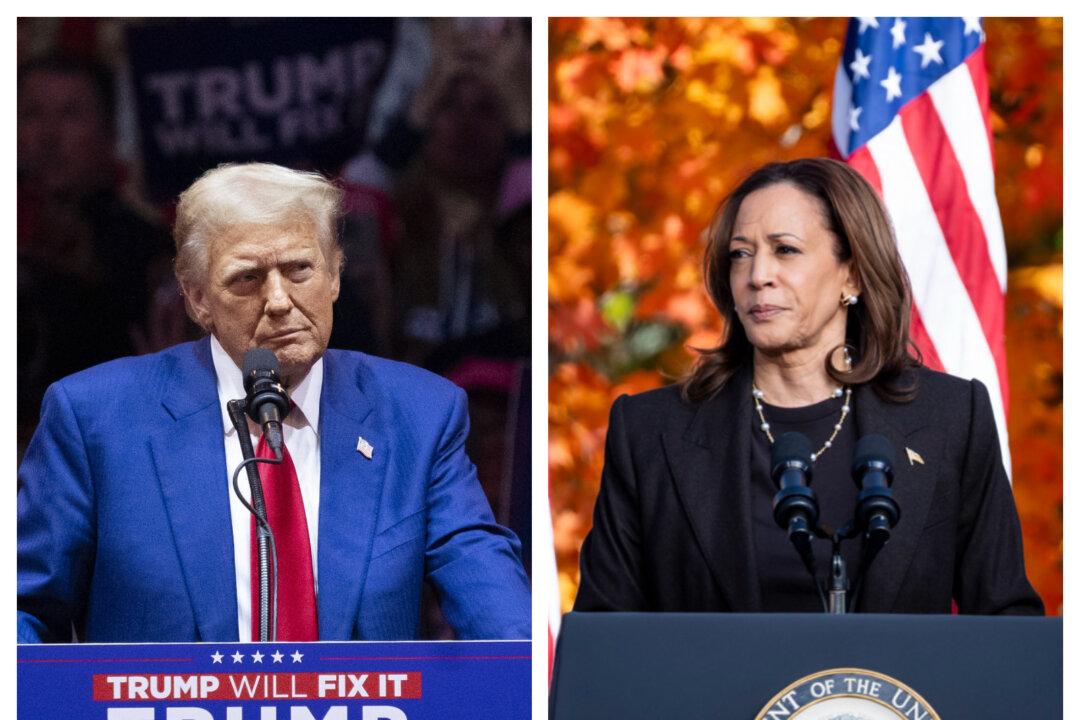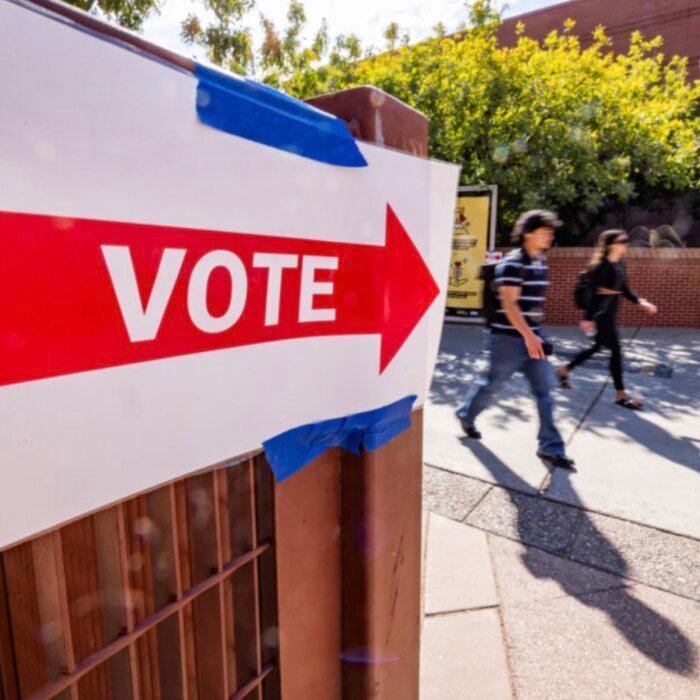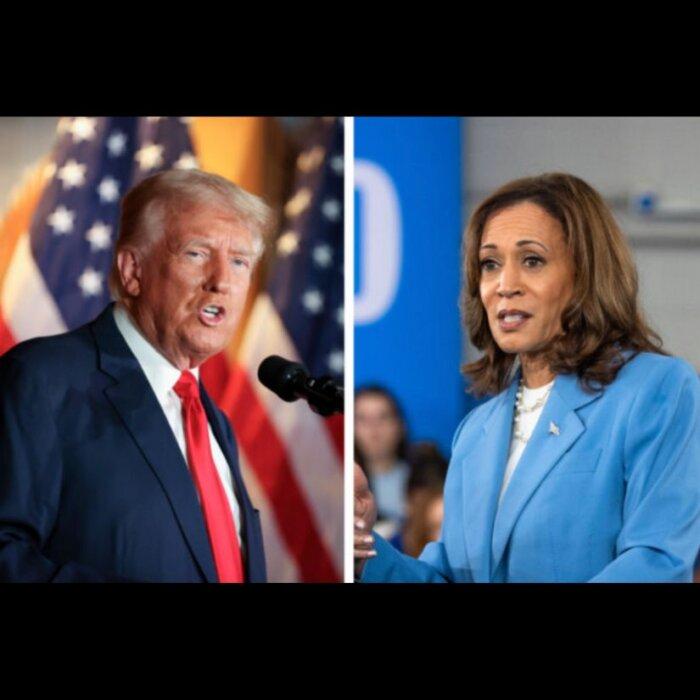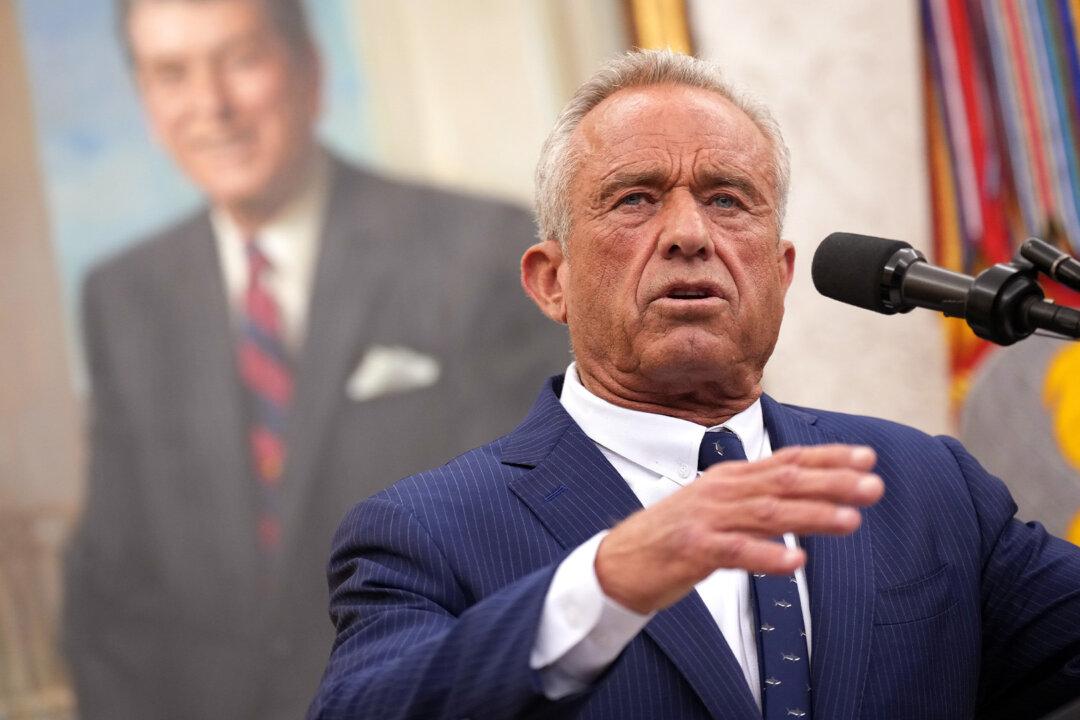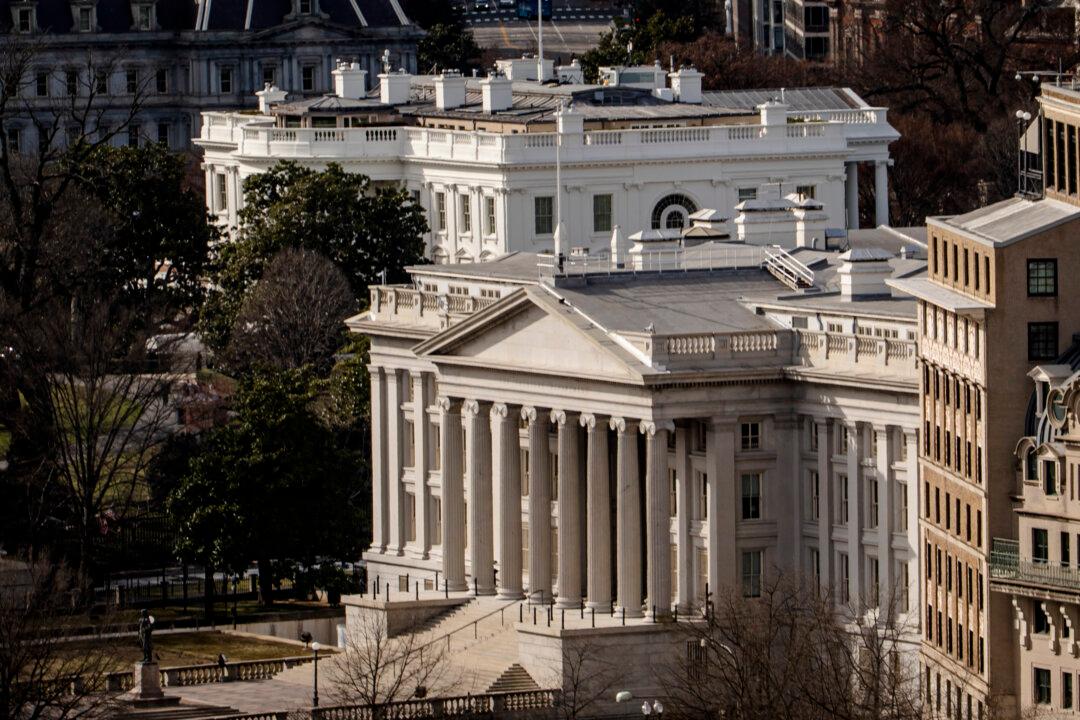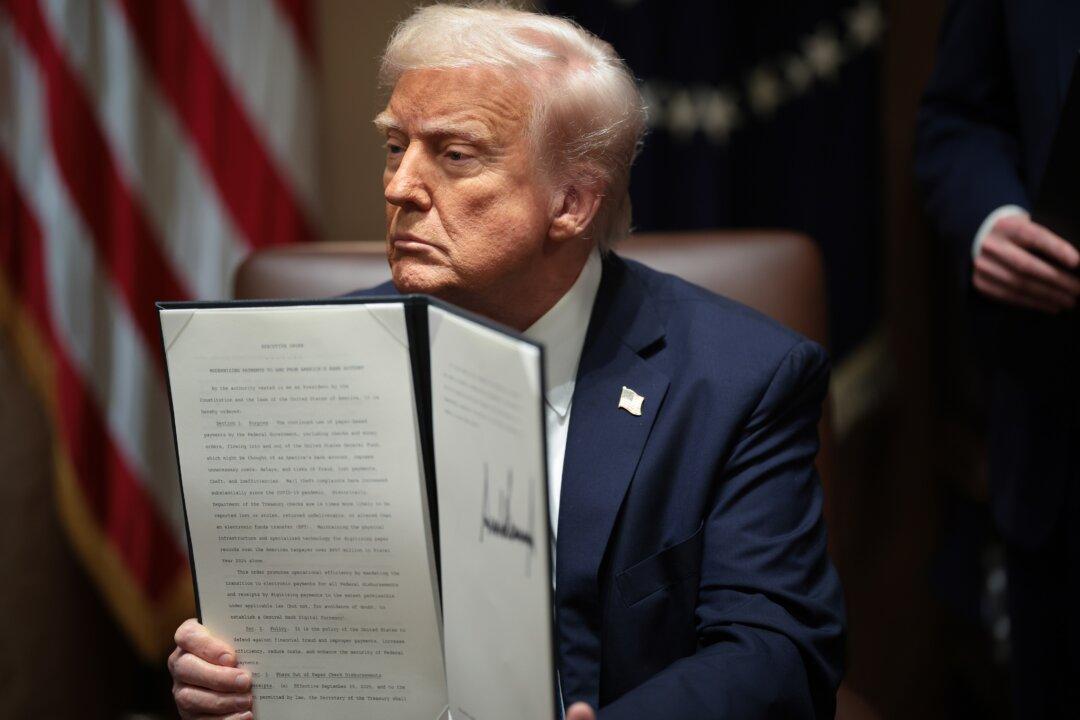Good morning, and welcome to The Epoch Times News Brief for Tuesday, Election Day, Nov. 5, 2024. I’m Bill Thomas, we have some very important stories to share with you right now, and here’s what’s going on.
A major TV network grants significant airtime to former President Donald Trump—we’ll tell you why—a federal judge makes a critical ruling regarding thousands of ballots in Iowa, and workers at a leading U.S. newspaper go on strike the day before the big election.
Also, an appeals court issues a significant ruling regarding the early release of prisoners, and a number of state officials are urging their financial planners to get their money out of China.
NBC Receives Warning After Harris SNL Appearance
Over the weekend, Harris appeared on Saturday Night Live, where she took part in a 90-second skit with actress Maya Rudolph.On Sunday, the commissioner of the Federal Communications Commission (FCC) said in a social media post that the appearance by Harris may have violated an FCC regulation that forbids broadcasters from giving airtime to one candidate during an election cycle unless the other candidate is offered equal time.
Following the FCC notice, the network gave former President Donald Trump a similar amount of airtime to speak to the public.
On Sunday, Trump spoke for about one minute in a pre-recorded message that aired twice—once during the NASCAR race and again later during an NFL football game. He opened up by greeting sports fans, and he went on to call today’s vote the “most important” election in the history of the United States.
Trump also said that the country is in “very bad shape,” that it “needs saving,” and that “we’re going to end up in a depression” unless we straighten things out by closing the borders, lowering taxes, and getting rid of inflation.
So you know, the FCC does have the ability to revoke a broadcaster’s license for certain violations, but just last month, the agency’s chairwoman said that such a cancellation would not happen for “political reasons.”
Judge Rules on Challenge to Noncitizen Voters in Iowa
The judge says that Iowa election officials may continue to follow Secretary of State Paul Pate’s directive to challenge the ballots of a number of people who have been identified as possible noncitizens.Pate had recently directed county auditors in the state to investigate certain voters who had previously identified themselves as noncitizens to the Iowa Department of Transportation (DOT).
However, last week, the American Civil Liberties Union (ACLU) of Iowa filed a lawsuit, which alleged that the secretary of state’s directive violated the equal protection clause of the U.S. Constitution.
In the suit, the ACLU made the case that the list of potential violators was based on outdated DOT records, that many of the people on the list have already been proven to be citizens, and that some legitimate voters might have a tougher time casting their ballots because the list is being kept secret.
Pate responded by saying that if voters can legitimately prove their citizenship, they will be allowed to cast a provisional ballot instead, and that vote will still count.
The judge said he declined to grant the injunction requested by the ACLU because he found that a portion of the names on Pate’s list had actually been confirmed to be noncitizens.
The judge pointed out that this particular portion of voters on the list appears to be no more than 12 percent, which he called “relatively small.” However, he said that if he granted the injunction, it would force election officials to allow those people to vote.
Pate hailed the court’s ruling as a “win for Iowa’s election integrity,” and he also said that his office will continue to investigate the citizenship status of all voters who had previously reported themselves to be noncitizens.
NY Times Workers Strike Day Before Election
Yesterday, a union of New York Times tech workers walked off the job, just one day before today’s general election.The New York Times Tech Guild said on social media that managers at the publication were given “months of notice” prior to the strike deadline, and that it had no choice but to demonstrate the “power of our labor on the picket line.”
So you know, the guild says that it’s made up of more than 600 technology workers, including data analysts and software engineers who maintain the newspaper’s infrastructure along with its website.
A couple of months ago, members of the guild voted to walk off the job if The New York Times did not meet their demands, which included more job security, increased pay for women and minority workers, and more diversity among the paper’s workforce.
A pair of executives for the newspaper said recently that they put a “strong offer on the table” for the workers. They also said they’re disappointed because the guild’s leadership is trying to “jeopardize” the newspaper’s journalistic mission at this extremely critical time.
By the way, as you can well imagine, traffic to news websites, including The New York Times, is expected to surge all day long.
Court Rejects Releasing Some Prisoners Early
A federal appeals court has just ruled that a recent U.S. Sentencing Commission policy, which allows judges to order the early release of some prisoners, went beyond a law passed by Congress.So you know, the First Step Act was signed into law by former President Donald Trump in 2018, and it enabled prisoners to petition for early release based on extraordinary and compelling reasons.
Last year, the Sentencing Commission narrowly approved a policy adjustment that allows judges to take into consideration any changes to the law when determining whether or not to grant a prisoner’s petition for early release.
In one recent case, a criminal who had been convicted of two armed robberies over 20 years ago asked a judge to reduce his 42-year sentence, and he argued that changes in the law would make his penalty significantly shorter if he were sentenced today.
However, just last year, a federal judge rejected the criminal’s petition and noted in his decision that Congress specifically said its First Step Act did not apply retroactively.
A few days ago, the appeals court agreed, and found that the Sentencing Commission’s updated policy change, no matter how well-intentioned it was, contradicted the will of Congress.
By the way, this latest decision was made in favor of the U.S. Department of Justice, whose lawyers argued that changes in sentencing guidelines do not meet the criteria of an extraordinary and compelling reason to reduce a prison term.
State Treasurers Urge Public Pension Funds to Cut China-Based Investments
Eighteen state treasurers and auditors have just signed a joint letter sent to the financial guardians of their public pension funds, urging them to withdraw from China-based investments because of possible influence from the Chinese Communist Party (CCP).In the letter, the officials from 15 U.S. states instructed the financial reps to adhere to their duties, and to realize that investments in China “increasingly present red flags.” The letter also says that “the time has come to divest from China.”
The financial officers are located in states ranging from Alabama to Alaska, and they also include Pennsylvania, North Carolina, and Arizona.
Additionally, the officials pointed to a crackdown by the CCP on due diligence firms that perform financial audits in China, which they say have become unreliable. They also say that they’re highly concerned about CCP interference in the Chinese stock and bond markets.
The letter also warns that the CCP places intelligence and military operatives within China-based companies.
By the way, last year the secretary of the U.S. Department of Commerce said that American companies had complained to her that China has become “uninvestable,” and they pointed to raids on businesses there as one of the reasons why.
So you know, the U.S. Securities and Exchange Commission (SEC) also warns on its website that Chinese companies often set up risky offshore entities so they can bypass China’s rules that restrict foreign investment. The SEC says that China could suddenly determine that these shell companies are illegal, and that it might result in a “significant loss” for anyone who attempts to invest in them.
And now, it looks like our time is just about up for today, but before we call it a wrap for the Tuesday edition of The Epoch Times News Brief, a quick programming note. The News Brief team will be with you throughout the day today and into the evening hours with presidential election updates, and we hope you’ll join us for up-to-the-minute coverage of this highly consequential election.
Don’t forget the News Brief Motto: We’re portable, affordable, and always on-demand.
And finally, as we do each and every day on this program, we wrap everything up with a very notable quote, and this one comes to us from Christopher Reeve, who said: “A hero is an ordinary individual who finds the strength to persevere and endure in spite of overwhelming obstacles.”
Reeve was an actor-director-activist, and he was a super man. He was Superman.
For all of us here at The Epoch Times News Brief, I’m Bill Thomas.
The Epoch Times News Brief program is written each day by David Ross.
Thank you for making us your one-stop source for a concise, accurate, and unbiased daily synopsis of many of the news stories you need to know about.
Enjoy the remainder of your day, and we’ll see you right back here tomorrow for another edition of The Epoch Times News Brief.
For now, let’s all continue to watch out for one another, and have an absolutely superb day today. Bye for now.
